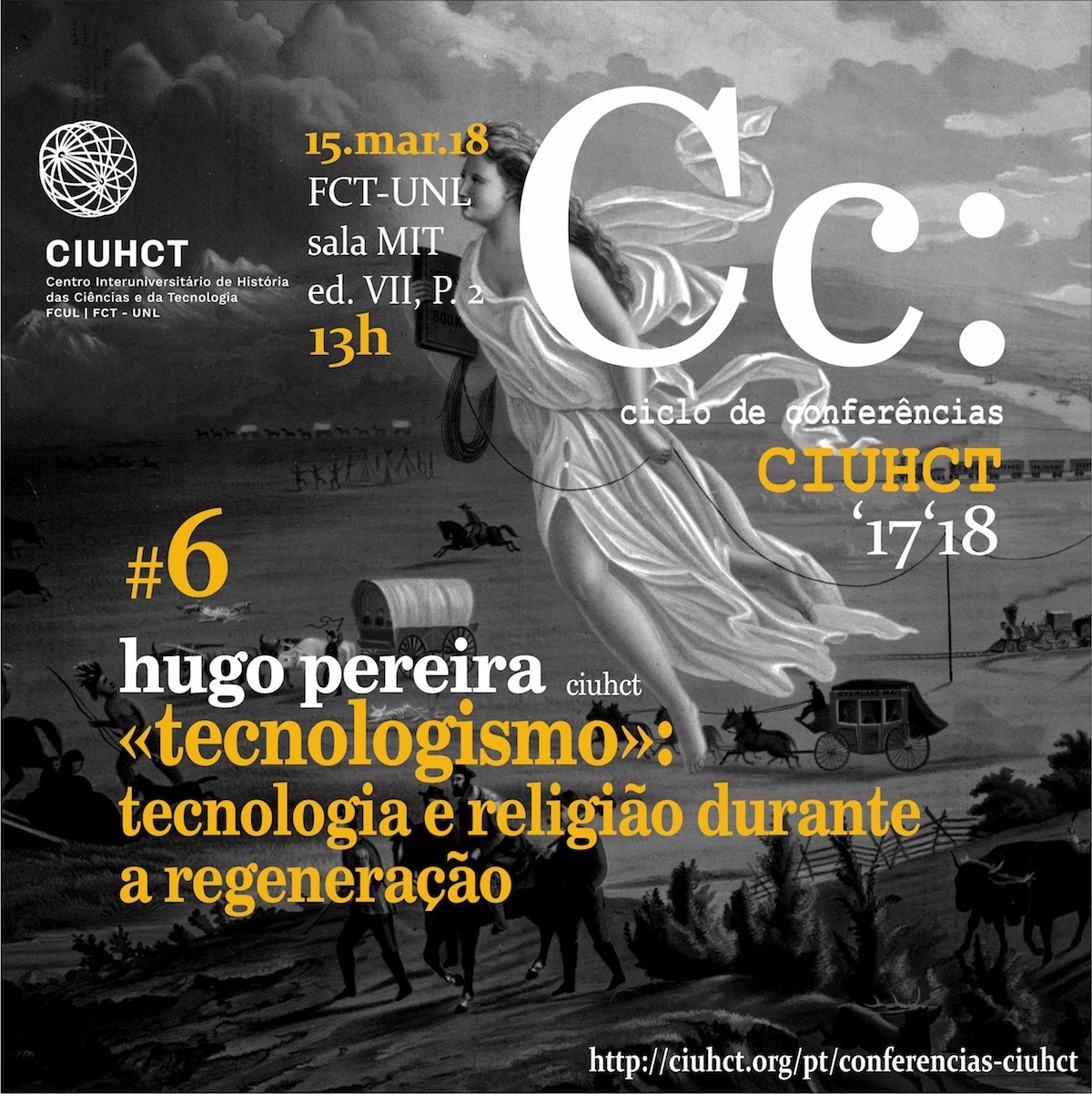#6. «Tecnologismo»: Tecnologia e Religião durante a Regeneração
FCT-NOVA
Sala MIT, ed. VII, P. 2
15 março 2018 · 13h00

Sinopse
Na segunda metade do século XIX, Portugal investiu em diversas soluções tecnológicas para modernizar diferentes setores da sociedade, sendo o caminho-de-ferro uma das mais imponentes inovações. Além dos benefícios materiais que trouxe em termos de velocidade e capacidade de transporte, a ferrovia desempenhou ainda um importante papel simbólico, como representação indisputada de modernidade, progresso e civilização. Neste artigo, pretendo demonstrar que o sentimento de sublime provocado pela locomotiva vapor assumiu igualmente contornos religiosos, de religião implícita (tecnologismo), que contribuíram para cimentar a implementação da ferrovia e dos seus principais agentes tecnológicos na sociedade nacional.
Sobre o orador (em inglês)
Hugo Silveira Pereira, post-doctoral researcher at the Interuniversity Research Centre for the History of Science and Technology (University NOVA of Lisbon) and the Institute of Railway Studies (University of York) and former Visiting Scholar at History Department of the Massachusetts Institute of Technology. He concluded his PhD in 2012 with a dissertation about the Portuguese national railway policy in the second half of the 19th century. He presented and published several papers about Portugal’s mainland and colonial railways. His current academic interests include the decision-making process of building railways in the Portuguese former colonies of Angola, Mozambique, Goa, and Macao.